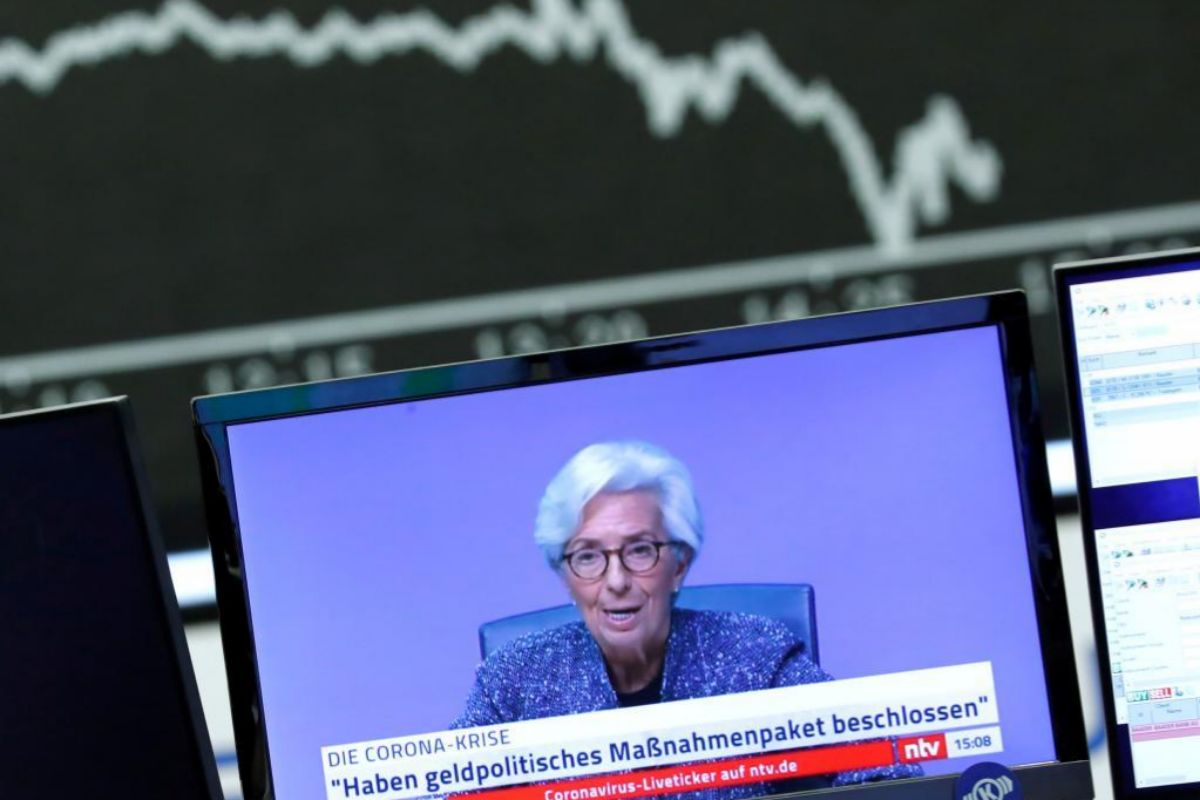- Direct Coronavirus, latest news
The pandemic emergency purchasing program (PEPP) of the European Central Bank (ECB), announced last week by the issuing institute of the Eurozone and with a scope of 750,000 million euros , will not be subject to the restrictions of its other asset acquisition programs, which limit the amount of each debt issue that the entity can buy in the markets, which in practice leaves the ECB free to implement its purchases.
In a decision of the Governing Council of the ECB, published by the Official Journal of the European Union, the central bank declares that "to guarantee the effectiveness" of the PEPP, the limitations on consolidated holdings applied to its previous debt purchase programs will not apply. .
In this way, the ECB may stop applying the 50% limit by ISIN code in the case of admissible negotiable fixed income instruments issued by admissible international organizations and multilateral development banks, as well as the 33% restriction by ISIN code. in the case of other admissible negotiable fixed income instruments.
Likewise, the ECB stresses that, although public debt purchases will continue to be guided in their distribution by the key to the subscription of the institution's capital, it will approach its purchases under this program " with a flexible approach , in order to prevent current shocks of the euro area aggregate sovereign debt curve translate into further distortions of the interest rate curve, "in addition to buying fixed income instruments with maturities shorter than those purchased under previous programs.
In this sense, the new coronavirus emergency program will be able to acquire negotiable fixed income securities with a minimum residual maturity of 70 days and a maximum of 30 years and 364 days.
Furthermore, "in order to guarantee the effectiveness of the PEPP, the Eurosystem accepts the same treatment ( pari passu ) as private investors regarding the negotiable fixed income instruments of the public sector that it can buy".
In addition, the issuing institute undertakes to publish the aggregate book value of the securities held under the PEPP weekly and to report monthly on net monthly purchases and accumulated net purchases on a monthly basis.
The ECB announced on March 18 the launch of its new emergency purchasing program against the coronavirus pandemic with a total allocation of 750,000 million euros and that will be in force until the crisis phase by Covid-19 has ended. , guaranteeing that at least it will continue to buy assets until the end of 2020. "The Eurosystem will not tolerate risks for the proper transmission of its monetary policy in all the jurisdictions of the euro area," underlines the institution.
According to the criteria of The Trust Project
Know more- Coronavirus
- Covid 19
EconomyThe ECB comes out in defense of the Eurozone with a 750,000 million emergency plan against the coronavirus
Macroeconomics The ECB anticipates another crisis such as the one in 2008 and the stock markets succumb again to losses due to the coronavirus
MacroeconomicsThe Fed lowers rates by surprise at the impact of the coronavirus and the stock markets moderate their optimism

